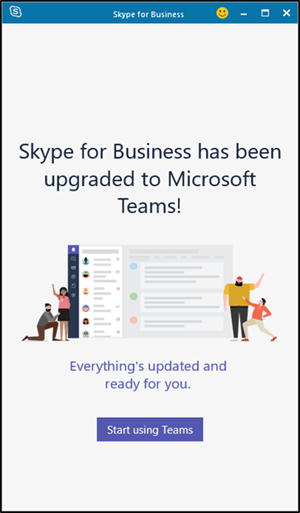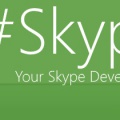Skype for Business Server 2019: Preparation for Developers
We already know that there will be a new version of Skype for Business Server, called Skype for Business Server 2019. But what developer tools will be available in this new version?
We’re starting to get clarity on this, in the shape of new documentation.
What’s in Skype for Business Server 2019
There’s a great documentation page published earlier this month, listing the new features coming to 2019. Hopefully, this page will stay up to date in the light of any future announcements, but if it doesn’t, it’s actually a GitHub repo, so submit a pull request to update it! As of today, the new features are:
- Cloud Voicemail
- Call Data Connector
- Side-by-side migration
- Migration to Teams
Looking through them, I don’t think any of these will have a particular impact for developers, although they’re certainly of interest to IT Pros. The Call Data Connector is interesting and will potentially make life easier for anyone reporting on call data, as it will push all on-premises call data up to the cloud so that you can report on it using the online Call Analytics and Call Quality Dashboard tools.
A reminder that my employer, Modality Systems, provide detailed reporting on Skype for Business On-Premises, Skype for Business Online and Teams performance in PowerBI, as well as user adoption, change management, Office 365 licensing and PSTN billing reports. For more information see Modality Systems Diagnostics Reporting. Full disclosure, I work for Modality Systems.
What’s NOT in Skype for Business Server 2019
This is potentially the more important section, and the one people tend to worry about. However, Microsoft are striving to provide as much information as possible to give people time to prepare. That’s why there is another documentation page: What’s deprecated from Skype for Business Server 2019 to provide this information. From that page, we know we will loose:
- XMPP Gateways for Skype for Business Server
- Persistent Chat for Skype for Business Server
- SQL Mirroring for Skype for Business Server
- In-place upgrades
- Mobility Service (Mcx)
The one item that stands out there for developers is the depreciation of Persistent Chat. This means that the accompanying Persistent Chat SDK will become useless and can’t be used with 2019, as there won’t be a Persistent Chat service for it to connect to. Developers should avoid starting any new projects using this SDK. However, for existing systems there is a workaround…
Persistent Chat in 2019
For anyone who writes or uses any software which interacts with Persistent Chat, this is likely an uncertain time. However, I’m happy to try and bring some clarity, courtesy of Mindlink. Mindlink are a Unified Communications software company and Microsoft Partner who have developed a number of solutions, including those using Persistent Chat. Ben Osborne, their CTO, writes in a blog post about continuing to use the 2015 Persistent Chat Server in a Skype for Business 2019 environment. Specifically:
- 2015 Persistent Chat Server is fully supported in a 2019 topology.
- Users homed on 2019 Front End pools have full access to PChat rooms on 2015 pools.
- Skype for Business 2019 client continues to support Persistent Chat.
- 2019 Management Shell Persistent Chat cmdlets can be used to manage Persistent Chat pools/categories/rooms.
- 2015 Persistent Chat server is similarly covered under extended support through to 2025.
Source:Â https://www.mindlinksoft.com/blog/the-state-of-persistent-chat-in-2019
The good news though is that for the majority of Skype for Business developers, there won’t be any problems moving to 2019. Existing UCMA, UCWA and MSPL solutions should continue to work fine (although it’s always worth fully testing first…see below).
Preparing for 2019
The public preview of Skype for Business Server 2019 is now available, so it’s definitely worth downloading and installing in a lab in order to test all your existing Skype for Business applications for functionality and compatibility. Here are some things I’ve noticed:
Migrating UCMA from 2015 to 2019
Skype for Business 2019 ships with an updated version of UCMA. If you’re creating a new trusted application server then you have to set the next hop pool to a Skype for Business 2019 pool (not any legacy pool you might see in the drop down). If you’re migrating an existing trusted application server then you should also update the version of UCMA on that server to the latest version included in the 2019 package. More information here: https://docs.microsoft.com/en-us/skypeforbusiness/migration/configure-trusted-application-servers
Hybrid environments & Migration to Teams
Be aware that in a hybrid environment, it’s possible in Skype for Business Server 2019 to migrate on-premise users fully to Teams. When this happens:
- their meetings are migrated to Skype for Business Online
- their contacts are migrated to Teams
- they will still be able to join Skype for Business meetings in the Skype for Business client, but other functionality will be reduced.
- there are per-user options to bypass moving the audio conference portion or the enterprise voice portion to the cloud
These could all have an impact on applications which are expecting certain Skype for Business functions. The most obvious of those is the Skype for Business client, where users just won’t have the option to perform many tasks other than joining an existing Skype for Business meeting. Here’s what migrated users will see when they open the Skype for Business client:

It’s important for all Skype for Business Client developers to test what effect this will have on their application and provide guidance to their customers on what users can expect as they migrate.
In addition, as users migrate from Skype for Business to Teams, this might have an effect on any UCMA, UCWA or MSPL applications remaining on Skype for Business. Those users will no longer be Skype for Business users, so it’s likely that things like viewing presence, sending IMs or manipulating contact lists will not work correctly, or at all. Again, this is where testing is required…ideally before your users start logging tickets!
The Teams Developer Platform
For Skype for Business developers who haven’t made the leap yet, now is also an excellent time to start exploring some of the exciting things you can do with the Teams Developer platform. Bots are easier to write, bringing contextual data to conversations is richer and more embedded and there is some great tooling available. For more information and to get started, check out my dedicated landing page: thoughtstuff.co.uk/teams.










